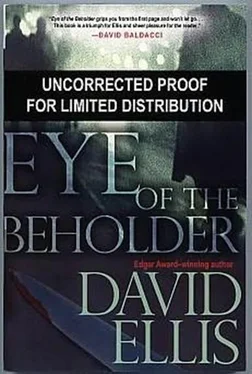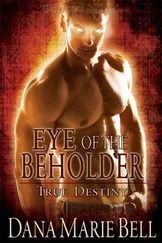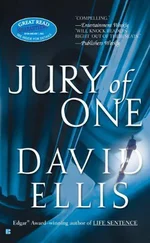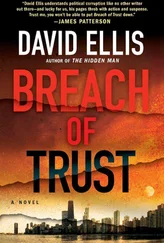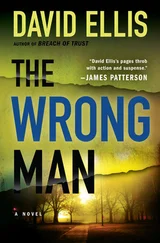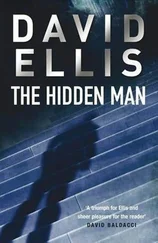“That’s okay. I was here last week, when you were-not with your friend here but a client, it looked like. You ordered a drink at the bar and made a joke. You made me laugh. You were very nice.”
“And sober,” I add.
“You were sober, I’ll give you that. Maybe you could use some coffee.”
“That’s a better idea.” I push myself out of my seat. “I normally make an excellent first impression. Believe me.”
“You made a good first impression with me.”
Oh, that’s right. I’m actually feeling better than expected, which is probably due to the adrenaline kicking in, fighting through the intoxication. But this really isn’t my thing. I was as celibate as a priest for a good eight, ten years before I met Shelly. Never did the pickup scene. Not ready to start now.
“I think the best course of action here, Molly, is that I put you in a cab.”
She smiles at me like she’s suspicious. “You’re either a gentleman or you’re not interested.”
“I’m neither. But I’m much closer to a gentleman when I’m sober.”
But the truth is, she’s half right. I’m not interested. I’m carrying a torch for someone who has moved onward and upward.
She motions down the way. “I live about three blocks down. Walk me home?”
Three blocks down puts her near Lilly. Sax’s is on the west side, so she must live in one of the lofts that have cropped up out here. She’s probably an artist. Dancer or musician. Dancer would be good.
I like this side of town, in part because it has largely avoided gentrification so far. The near west side is still industrial, with only a handful of excellent bars and restaurants standing out among the construction companies and factories. Even the little modernization that has taken place has been met with resistance from community groups. They put a Starbucks down the road a few months ago and half the neighborhood protested. The other half ordered mocha lattes. The area is getting whiter and trendier. The stampede of progress is running roughshod over the cluster of protesters who wring their hands.
It rained earlier, leaving the damp smell that I love. Small pockets of rainwater fill the potholes that cover the roads out here, where there’s no money, and the aldermen don’t have the mayor’s ear.
“Do you still do criminal cases?” she asks me.
“When I can.” The heater criminal cases are few and far between for a guy like me, because my billable rate is ridiculous, and the only criminal defendants who can afford me are of the white-collar variety, where the injuries are calculated by accountants, not coroners.
“Let’s talk about you,” I suggest.
We turn a corner, down a street of tall buildings that make it feel more like an alley. We walk over long-abandoned railroad tracks embedded in the asphalt, and I’m wondering where she lives. Some of these old warehouses have been converted, but they don’t display any signage. The deal is, these lofts are gorgeous and cheap, but you can’t walk to much, and you’re lucky if you have a view of anything other than the side of a building.
“So?” I ask.
Molly stops, looks up at me, and blushes. At least, I think she blushes. Her face seems to change in the shadows. The street is relatively dark, some illumination from a streetlight to our south, casting a light on her face that highlights the smooth skin, those wonderful eyes looking up at me.
“Let me give you my card,” she says.
“Oh. Great,” I manage, but as she’s reaching into her purse, the shoulder strap on her bag slides off, landing hard on her elbow, and the momentum topples the purse from her hand onto the sidewalk. The purse’s contents spill onto the pavement.
I bend down to help, so we are both in a crouch. This is the part where we look into each other’s eyes and submit to the sexual tension. But I have neither the physical nor mental capacity for that right now, and my heart, alas, belongs to another. So I concentrate on the credit cards and lipstick and money clip and compact on the sidewalk when I probably should be concentrating on the sound of footsteps behind me.
Then it hits me, a tickle in the back of my brain, as I watch her eyes move over my shoulder, her lips part in expectation. I guess she’s a pro after all. Just not the kind I expected.
A split second later, it hits me for real, something hard and metal, on the back of my skull.
YOUR BODY IS WARM, Paul. Your body is moving, rising and falling. You’re still alive, unconscious but alive.
She’s running away, trying to escape, but she’s in heels, she can’t move like Leo, he darts down the alley, faster than her, she’s running but he’s catching her, closing ground quickly, here I come, she’s trying to scream but the fear stops her, stops her cries, closes her throat, the only sounds her tortured breathing and her heels going clack-clack-clack on the pavement, clack-clack-clack, but not for long.
He comes at an angle, lowers a shoulder, barrels into her, knocks her against the alley wall, smack against the wall, smack and plop, she falls onto a bag of garbage, then rolls onto the wet street.
Quiet now. Mumbling and crawling, mumble, but don’t scream, can’t scream, pushing herself off the pavement, crawling and crying.
He raises the tire iron, follows her, it’s over now.
Quiet now. Quiet.
People v. Terrance Demetrius Burgos
Case No. 89-CR-31003
July 1989
Riley relayed instructions to an assistant county attorney, who walked with him on his way to the office of the county attorney. “Tell whoever it is at the print lab that it’s me asking, that this is the Burgos case, and this goes first in line,” he said to the man, who was scribbling notes. “And if he can’t put us first, tell him I’ll want a five-page memo, single-spaced, explaining why.” He watched the young ACA run off and chuckled to himself. He’d thought to threaten the guy at the print lab with his job, but making him prepare a written memorandum would be scarier still. He was beginning to get the flavor of county government.
He took a breath and approached the door of his boss’s office.
“Come in, Paul, come in.”
County Attorney Ed Mullaney was a large man in his midfif ties, with a mess of freckles over a drawn, red face. His chin had sagged over the years and hung over the collar of his shirt. He was like an old-fashioned big-city boss, heavyset and cigar-chomping, most comfortable leaning back in that rickety leather chair of his, waxing philosophical about politics and law enforcement. He’d been a big drinker in his time, so the story went, but stomach problems had kept him off alcohol lately, and his mood was less than cheerful as a result.
Riley collapsed in the chair across the desk.
“You look like an Irishman who could use a drink,” Mullaney said.
“Is there any other kind?” Riley tried to smile. It was only six o‘clock. The day was winding down for Mullaney but just beginning for Riley. It had been five weeks since the discovery of the bodies and arrest of Terry Burgos. Riley hadn’t been home before midnight a single day since the murders, something not lost on his wife, Georgia. The investigation had felt like a tidal wave. Riley had assembled a task force of lawyers, investigators, and officers and placed them under his supervision. Delegation was something Riley was trying to learn on the job. So far, not so good.
By now, every victim had been conclusively identified: the prostitutes by fingerprint analysis and visual identification; Ellie Danzinger by her parents and by fingerprints provided by the South African government; and Cassie Bentley by her mother, Natalia Lake Bentley, and through dental records.
Читать дальше
